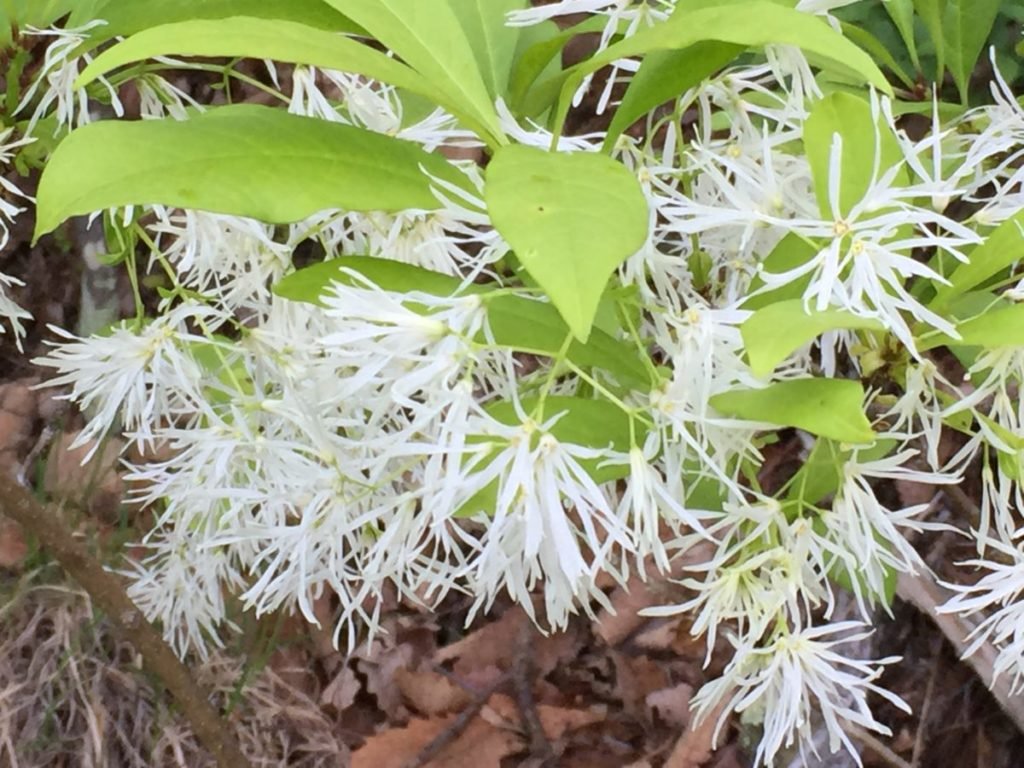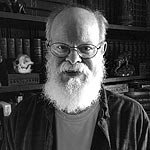
During the months of our restricted movements, my wife and I have continued our nearly daily walking. Although we had developed the habit pre-Covid for the health of our bodies and minds, the pandemic has added an ironic value to the endeavor. We circumnavigate our village of several hundred souls, masks at the ready, seeing other residents sweeping their porches, watering their flowers and we pause to spend a moment or two commiserating over the hedge or across the yard, a nearly extinct activity now in most larger cities. This is one advantage of country living: there are rarely crowds anywhere. Yes, the fundraising dance was canceled, the library and historical society museum are closed, the farmer’s market went pre-order on line, but summer haying continues, the tooth ache comes when it wants.
Occasionally, I hike on my own. There is a well maintained trail of The Nature Conservancy near our town which I have hiked many times over a span of years and I always feel it is a kind of personal pilgrimage. Not simply walking for walking’s sake.
Walking is the subject of much literature: the Biblical Exodus, The Divine Comedy, Canterbury Tales, Thoreau’s essay Walking, Rebecca Solnit’s Wanderlust: a History of Walking and the recent In Praise of Walking: A New Scientific Exploration by Shane O’Mara. How can I join such distinguished company, this august genre? Such is unlikely, but there must be a Zen aphorism to make me feel more comfortable in this morning’s sweat-drenching heat.
Solnit in Wanderlust states that “pilgrimage unites belief with action.” I’m not sure my effort has anything to do with belief in a conventional religious sense, though it is a meditation of sorts. You have to at least be mindful of the roots that will trip you, the poison ivy that will itch you. I observe three deer, one snake and four metallic green tiger beetles. I look for bloodroot blooms in early spring, try to time an outing in early May (later each year) to witness the fringe trees’ glory. I’ve gotten to know the quartz vein in boulder gray, the straight persimmon standing almost halfway round the inner loop trail. I know where the chiggers live, where raspberries ripen, where autumn leaves accumulate in the dips in the trail. But such observations are only the surface of my adventure.
I do not pretend to arrive at some philosophical or spiritual insight when I walk nor do I expect one. Though walking by definition is anticipation; a promise of one foot to the other. None-the-less inspired, I have written a number of poems about this 3.7 mile trail. “And the end of all our exploring/ Will be to arrive where we started/ And know the place for the first time.” (from Eliot’s, Four Quartets). Everyone experiences cognitive development, but I like to separate out the ‘contemplative’ journey some of us take through the BIG questions of existence. Mine is a trek through time and space to be sure, and though I may arrive back where I started, the place and the hour are different in their details. I notice a tree fallen since last visit, always different clouds, a different light of a different hour. Many nights, instead of designing houses in my mind, I fade to sleep retracing this trail. I enjoy my time with myself though with creaky knees, I will be thankful to make it back to my Tacoma and the refreshment of a cool house and cold peach soup for lunch.
Just being alone is a solace of sorts. The attributes and creative possibilities of solitude are much praised. It is, after all, the individual who must learn for him or herself. As the Woody Guthrie song says, “You gotta walk that lonesome valley, you gotta walk it by yourself, Nobody here can walk it for you . . .” This is true whether acquiring a craft skill such as woodcarving or reaching the serenity of Nibbāna (Nirvāna). “You should live as islands unto yourselves, being your own refuge. . .” said the Buddha (from the Mahaparinibbāna Sutta #16). “What we learn to do, we learn by doing,” is a paraphrase by Jefferson of Aristotle. I do not anticipate being Saul on the road to Damascus or Buddha under the Bodhi tree as epiphanies cannot be anticipated even in this age of polls and predictions, what-ifs, and modeling decision tree outcomes. You have to relinquish all arrivings, opinions, desires, to find that illusive insight. “It is not every truth that recommends itself to the common sense.” said Thoreau, and I take this to be one definition of poetry (from Walking).
I can only hope that nature, in whatever infinitesimal way, survives in spite of human blunders of over population, deforestation, and global warming with all their cascading pestilences. JB MacKinnon’s The Once and Future World: Nature as it Was, As it Is, As it Could Be has influenced/ informed my walking here. It is an objective study of man’s perception and relation to the ‘natural’ world. Anyone claiming a naturalist’s bent must read this book. The idea of a spiritual pilgrimage must also include the dictum of the Hippocratic Oath of “do no harm,” as applied to both fellow humans and the natural world in which we live. I tread lightly.
Was there destruction in gouging this path through the laurel grove, crossing a wetland seep with pressure treated gangway, nailing plastic blazes to sassafras and birch? Yes. But this land is set aside in perpetuity to preserve and to educate; an island in a world cut up into poisoned farmland, acres of residential lawn and miles of asphalt highway. Why don’t we learn the lessons and attitudes from our Native Americans who roamed these mountains long before us? Not to romance the “noble savage” too much, we should be preserving as much as we can, though the wild ceased to exist a long time ago.
I return home from Fortune’s Cove Trail (factual and symbolic) before noon having had my nature fix. (From the book The Nature Fix: Why Nature Makes Us Happier, Healthier and More Creative by Florence Williams). My wife welcomes me as Penelope welcomed Odysseus, the same man as when I had set out. But I am not that man, but subtly changed; a few hours elapsed in pure motion is all that I can claim. The memory, the poem will come later.

Share this post with your friends.

